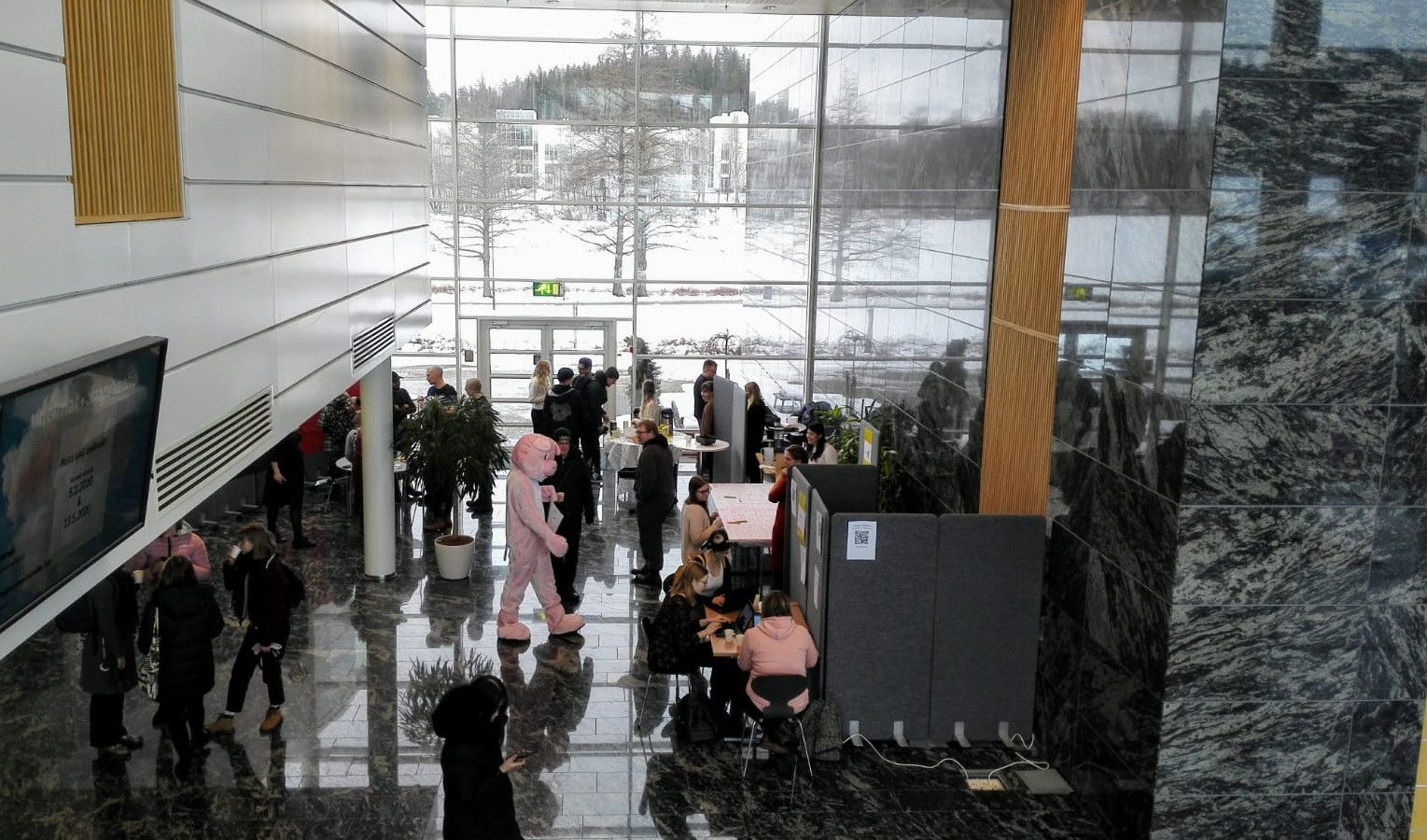
In early March, the University of Jyväskylä held a Compassion Day (Myötätuntopäivä), where people shared experiences, listened to others, and examined prejudices. The event was part of Nyyti’s “Compassion in Higher Education” project collaboration with the Department of Teacher Education at the University of Jyväskylä and their “Education, Society and Change” course.
COMPASSION IS THE COURAGE TO SEE AND ACT
Among other forms of activity, the Compassion in Higher Education project develops project activities that promote students’ courage to have compassion. Drawing from a service-learning approach, project activities were aimed at introducing the various dimensions of compassion through actions that benefit others and at examining those dimensions in the context of one’s own life and community.
The Education, Society and Change course covers themes of democracy, agency, and equality—all of which are themes that offered interesting insights when approached from a compassion standpoint. Several questions of compassion can be asked in this context: Do I see others and listen to them? Can I adopt another’s perspective? Do I see more unifying factors in people as opposed to signs of otherness? Do I have the courage to act when I see suffering?
BEING HEARD AND EXAMINING PREJUDICE
During the course, one “teacher room”, meaning a group consisting of subject teacher students from various fields of study, chose a compassion theme for their societal impact course project. For their project, the students took action to benefit others, studied the essence of compassion, and reflected on the role of compassion in their future teaching profession. The group decided to use their own university as their project subject, and they organized the Compassion Day event there.
Compassion Day consisted of three workshops in the lobby of the Agora building and involved a mascot, the Compassion Piggy, who roamed the lobby during the event. At the Irritation Station people, got to release their frustrations by writing down their grievances on a sheet, while also learning about other students’ thoughts. At the Stress Station, participants wrote down stressful thoughts on post-it notes and used stress-relief cards to counter the stress with positive thoughts and things.
The third workshop, the Prejudice Station, had visitors adopt caricaturized roles and engage in simulated online discussions with an ‘anonymous chat participant’ who hid behind a partition and stirred the pot with comments that were uncalled-for and labeled others. Additionally, the students organized a social media challenge where people promised to do acts of compassion and challenged their friends to participate as well with the #myötishaaste hashtag. With the social media challenge, Compassion Day reached people all around Finland.
“HUMAN CONTACT IS POWERFUL, AND TODAY DEFINITELY SHOWED IT”
Direct action to help others raised a lot of nuanced thoughts about the power of compassion in the course group. Students reflected on the meaning of being seen as equal, how rare it is for some people to be heard, and the big difference that little things can make: how listening to someone, a brief encounter, or a few kind words seemed to have a big impact. Many barriers were crossed by daring to discuss meaningful topics with strangers.
Several workshop visitors had mentioned that these actions taken to truly see and hear others felt meaningful in the midst of a stressful daily routine.
“Human contact is powerful, and today definitely showed it,” noted one of the students who organized Compassion Day.
“Students share a lot of the same worries and causes for anxiety. While reading what others wrote down, we realized that we’re not alone with our thoughts,” explained another student.
On the other hand, people also brought up heavy subjects that are seldom addressed. A more compassionate study environment offers space for people to verbalize those emotions, too. Moreover, examining prejudice together made people reflect on their own preconceived ideas, approaches to daily interactions, and what it’s like to be a target of others’ prejudices.
COMPASSION IN TEACHING
The group’s teacher Paula Rönnberg considers compassion a crucial part of a teacher’s work and an important perspective on the themes of the Education, Society and Change course.
“Teaching is about understanding others, listening to others, and hearing what’s behind even the tiniest signals, as well as recognizing another person’s distress, help, and joy. Teachers meet lots of children over the course of their careers, and it matters how a teacher interacts with others, and how compassionate they are when viewing others,” she elaborates.
“Compassion is a genuine interest in one’s students, their lives, backgrounds, needs, and futures. One can show interest in a young person as simply as by taking a moment to ask ‘How are you?’,” the students reasoned in their course assignment.
